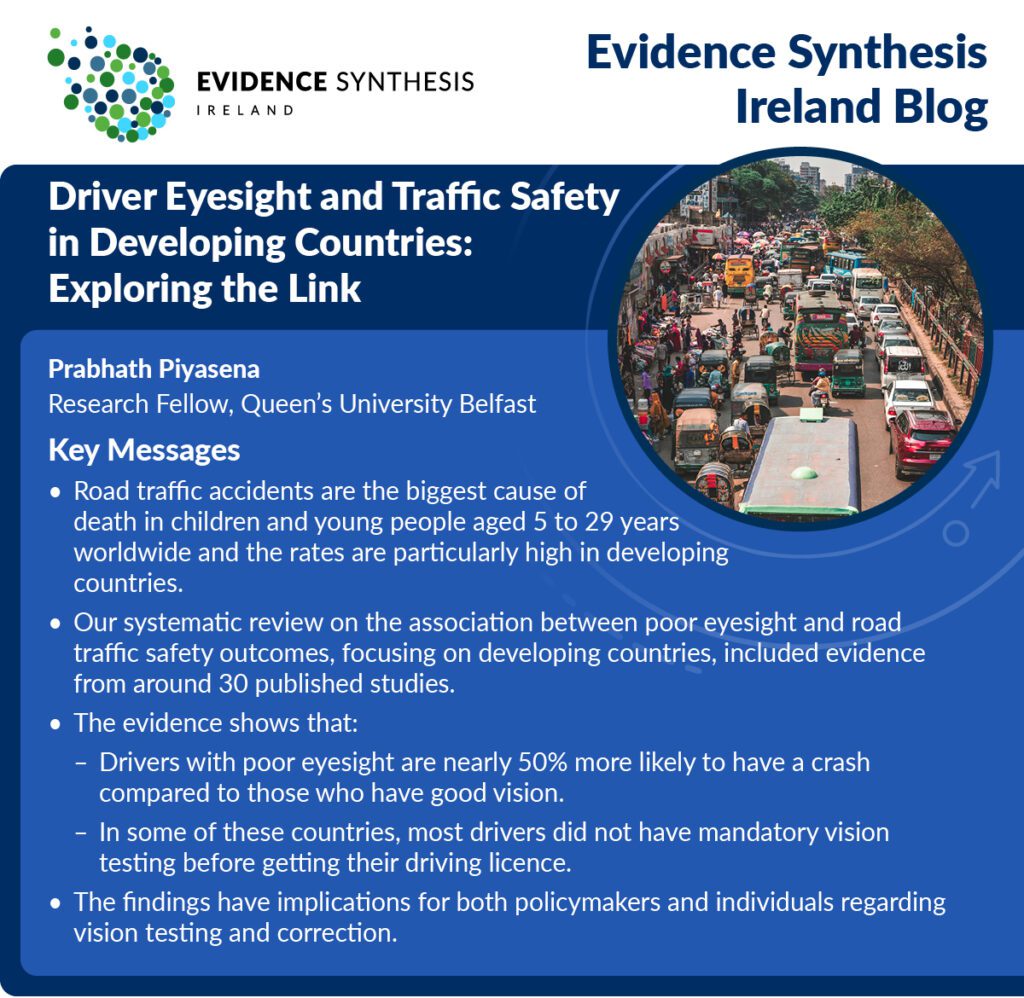In this blog for anyone interested in traffic safety, Prabhath Piyasena, a research fellow in global eye health and his team at Queen’s University Belfast, look at the latest evidence on the association between poor eyesight and road traffic crashes in developing countries, which has not been studied before.
Do you know the number one killer of children and youth aged 5 to 29 years globally? It is not the deadly diseases you might think. It is road traffic crashes! In the last few decades, we have been successful in reducing deaths among children and young adults from many illnesses. However, there is still much to be done to prevent deaths due to road traffic crashes. One area to explore is the impact of poor eyesight among drivers.
Our team of vision researchers looked into the latest evidence on the association between poor eyesight and road traffic safety outcomes, focusing on developing countries because >90% of traffic crash burden is in these countries. Although it is obvious that good eyesight is needed for safe driving, there has been no evidence up until now showing the link between poor eyesight and road safety. We carried out a systematic review, looking at the evidence from around 30 published studies, to explore this.
Looking at the evidence, we were surprised to see the high proportion of drivers with poor eyesight in developing countries. We found that drivers with poor eyesight are nearly 50% more likely to have a crash compared to those who have good vision. Also, in some of these countries, most drivers did not have mandatory vision testing before getting their driving licence.
Therefore, we urge the advocacy bodies working on traffic safety in developing countries and the relevant authorities to strengthen policies and regulations for vision testing for all those who hold a driving licence, and give them vision correction solutions such as glasses when necessary. We also emphasise the need to seek specialist eye care as early as possible if you notice poor eyesight and you are a driver. We hope that these measures will help reduce the burden of road traffic crashes worldwide.





